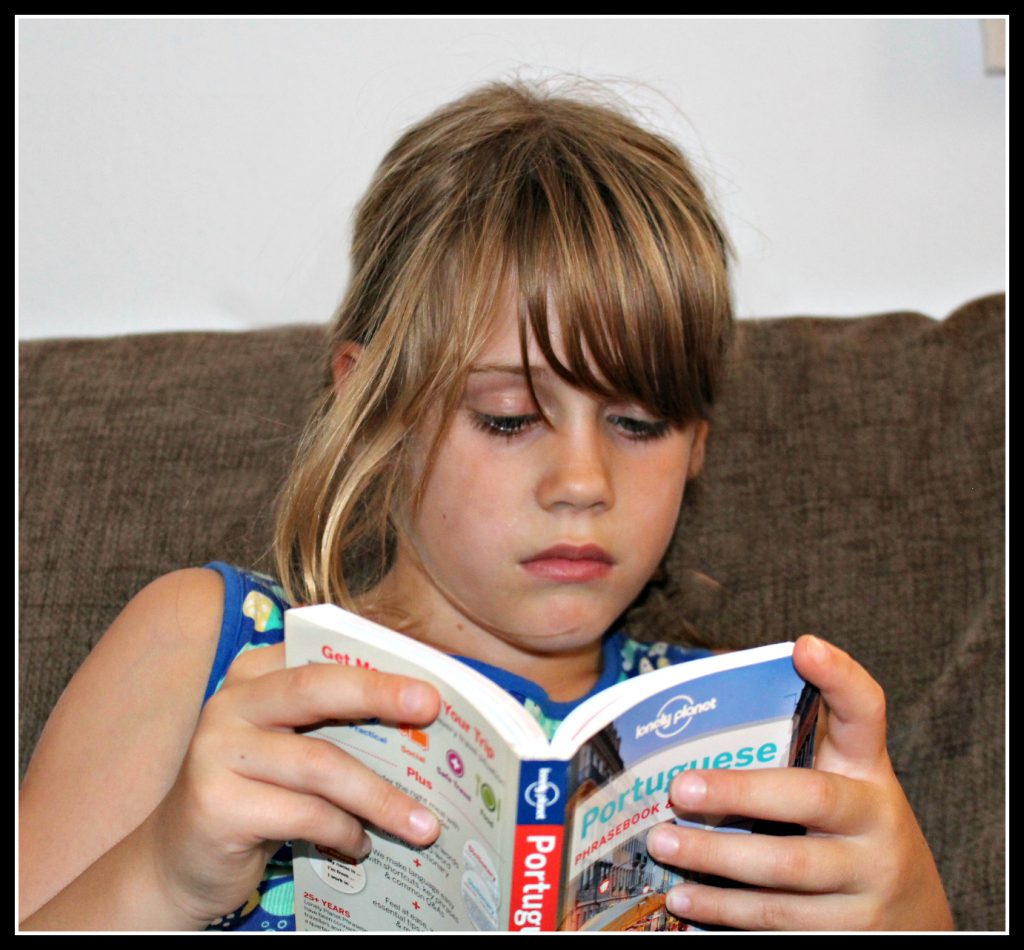I’ve long held the opinion that my children should learn foreign languages. I think it comes with my up-brinigng. Although half-French I always lived in English speaking households and so was never taught the language.

I was about 16 before I made any serious attempt to learn French. I may have been a late starter and my skills are dreadful, but I’m glad I made some effort.
The way foreign languages were taught at school when I was young didn’t help. First of all, languages weren’t taken seriously. They weren’t taught until secondary school, which is far too late. We also seemed to do nothing but conjugate verbs the entire time. Hardly thrilling or inspiring stuff for the average 13 year old.
Despite this, I learned to throw a few words together in French and, in my late twenties, some Spanish too. Ever since my kids were tiny I’ve spoken to them in French and when finances were a little healthier, paid for some private language lessons.
Even so, I admit my efforts have blown hot and cold. Sometimes I can go for a fortnight without muttering a single French word to them, other times the only CDs we play in the car on the school run are French language.
Practical application of the language, however, has been thin on the ground. We make the occasional day trip to Calais during which Helen, our seven-year-old, will say please and thank you in French when prompted but that’s about it.
I have come to realise that this is a gaping hole in my approach. I can teach them all the words I want, but without giving them the opportunity to apply their knowledge, they’ll never truly master a second language.
How have I come to relaise this? It was during our recent holiday in Portugal. Helen found a Portuguese phrase book and she took to reading through it and practicisng the phrases. Although a little shy, she muttered the occasional “obragada” (thank you) to waiters and other Portuguese folk she met.
At her insistence, we had to copy words into an exercise book in English, Portuguese and phonetically. I also went out of my way to point out words and signage in Portuguese, Englsih and French in the hope she would see the similarities between the different languages. As anyone with experience of Foreign languages will tell you, if you can crack one language, you can crack others.
I took it as a great success when Izzy, our three-year-old, asked me why people speak “Portugal language.” Okay, yes, she asked me in English, but in her mind, she had clearly worked out that there were other ways of communicating; a big first step in getting her interested in languages.
My proudest moment during the holiday, however, came when we went for a day trip just over the border to Ayamonte in Spain. Although a holiday resort, this was no Marbella. The holidaymakers were mostly Portuguese, Spanish and French. As Brits, we were way down the food chain and English was not widely spoken.
Spanish regional accents can be horrendously tricky. I very quickly picked up the accent in this region was very heavy indeed, like listening to English in thick Glaswegian.
We went for lunch and our waitress didn’t speak Enlgish. Despite not having spoken Spanish for a decade, I managed to order food for the entire family and deal with a couple of complications with the order. My family just had to sit in silence and listen as I got on with it.
It wasn’t the fact I pulled it off that made me proud, it was that my daughters saw me do this. I wanted them to see me using another language successfully so they would understand the benefits of speaking more than one.
The holiday has made me consider a complete change of direction. I don’t want to give up on teaching my girls French. They do, after all, have French relatives so it makes sense for them to learn it. Now she’s started Year Three, Helen should have the opportunity to join French Club at school. I’m very keen for her to do this and I’m sure it’ll help.
That said, both kids have an awareness of Portuguese. I’m wondering if I might be better off teaching them a little. It’ll be fresher in their minds, they can relate to it and they’ll associate it with a fun holiday. The written language is similar to Spanish which, in turn has similarities to French.
It’s tough knowing what to do. Better to do something than ignore languages altogether. Inaction, after all, is the worst course of action.
Do you teach your children other languages? Do you think this is an important skill or a waste of time? Please leave a comment below with your thoughts.







1 thought on “Teaching children languages – does anything beat practical experience?”
I’ve been speaking a bit of french with my 2 and a half year old and she repeats it brilliantly! She obviously hasn’t got a clue about syntax or anything but I aim to carry on. My mum’s family are all from Mauritius so I think it’s important we keep that link going strong. A similar situation to you I imagine!
Motivation is low sometimes though, that’s an issue! I’ve also noticed myself not speaking a word of it in weeks.